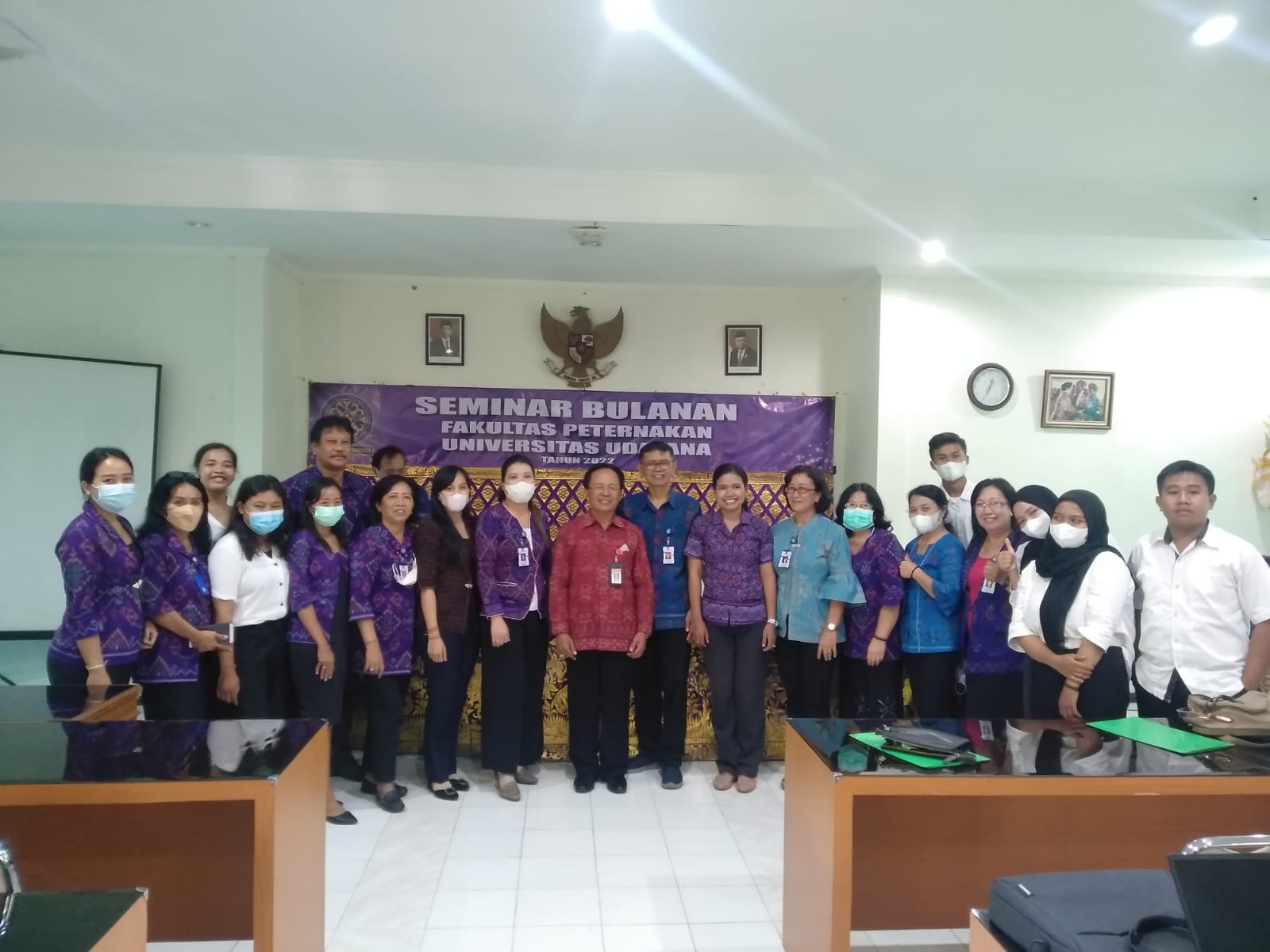PMK Spreads, Faculty of Animal Science Unud Takes Prevention and Control Measures
Foot and Mouth Disease (FMD) is a polemic in the world of animal husbandry which is very sensitive to other animals such as cattle, buffalo, goats, sheep, deer, pigs, and other livestock. This disease is generally caused by type A virus from the family Picornaviridae, genus Apthovirus, namely Apthaee epizootecea. An outbreak of this disease previously spread in Indonesia in 1887, namely in Malang, East Java and spread to various regions in Indonesia. FMD is a disease that is not zoonotic in nature but is considered an infectious animal disease that is most feared by all countries in the world because it can spread quickly to various countries and cause substantial economic losses due to high livestock mortality, sick livestock, trade barriers. , and disturbances in terms of economic, social, and environmental.
This PMK case re-emerged in Indonesia on April 28, 2022 after being declared acquitted for more than three decades. The magnitude of the impact caused the Indonesian government to immediately take action to control and overcome the spread of FMD, starting from implementing regional quarantine, procuring vaccinations, and increasing awareness by providing socialization to the public. The Faculty of Animal Husbandry, Udayana University as one of the institutions that produces livestock graduates, has contributed to addressing the problem of the PMK outbreak. In collaboration with the Department of Agriculture and Food Security of the Province of Bali, the Faculty of Animal Husbandry of Udayana University carried out socialization in the form of a Monthly Seminar with the theme of the activity "Challenges and Problems of the Spread of Mouth and Nail Diseases (FMD) in Bali Province" together with the Faculty of Veterinary Medicine, Udayana University. This activity was held on Tuesday, May 31, 2022 at the AA Building. 3rd floor, Faculty of Animal Science, Udayana University, Bukit Jimbaran Campus.
This activity was opened directly by the Dean of the Faculty of Animal Husbandry, Udayana University, Dr. Ir. I Nyoman Tirta Ariana, M.S., IPU., and attended by the Deputy Deans, Unit Coordinators, Study Program Coordinators, and all lecturers in the Faculty of Animal Science, Udayana University. “This monthly seminar is one of the routine programs carried out by the Faculty of Animal Husbandry, Udayana University as a tangible manifestation of the faculty in addressing the problems that exist in the livestock sector. The themes raised every month vary, according to current livestock issues,” said the Chair of the Activity Committee, Dr. Ir. A. A. A. Sri Trisnadewi, MP. The Dean of the Faculty of Animal Husbandry, Udayana University added, “This PMK problem has a serious impact, not only on livestock, but also on institutions. Students who are carrying out industrial internships at several ruminant livestock farming institutions in East Java are withdrawn from the internship sites to avoid the increasing spread of this PMK”.
The implementation of this monthly seminar presented three speakers, namely Dr. drh. I Ketut Nata Kesuma, MMA., resource person from the Department of Agriculture and Food Security of the Province of Bali who conveyed related to the "Policy on Prevention of the Spread and Handling of Mouth and Nail Diseases (FMD) in Bali Province"; drh. Tri Komala Sari, M.S., Ph.D., resource person from the Faculty of Veterinary Medicine, Udayana University who explained about "Characteristic Patterns of Spread and Treatment of Mouth and Nail Diseases (FMD)"; and Dr. drh. I Gusti Agung Arta Putra, M.Sc., as a lecturer at the Faculty of Animal Science at Udayana University who explained about "Strengthening Livestock Management as an Effort to Prevent Mouth and Nail Disease (FMD)".
A resource person from the Department of Agriculture and Food Security of the Province of Bali stated that this effort to control FMD needs to be followed up immediately to control the spread of FMD. "The total population of Bali cattle in Bali Province is around 580 thousand and if it is assumed that one head is 10 million, then there is a possibility that this area will suffer a loss of 5 trillion if this disease spreads out of control. This calculation is only based on cattle, not to mention other livestock in Bali such as pigs and goats.” The magnitude of the impact caused by FMD shows that controlling and preventing the spread of this disease needs to be followed up immediately to ensure that the entire livestock population in Bali Province is in a condition that is safe for consumption and does not cause problems and losses in terms of economic, social, and environmental aspects. After the presentation session, it was followed by a discussion session and ended with giving certificates to the speakers.





